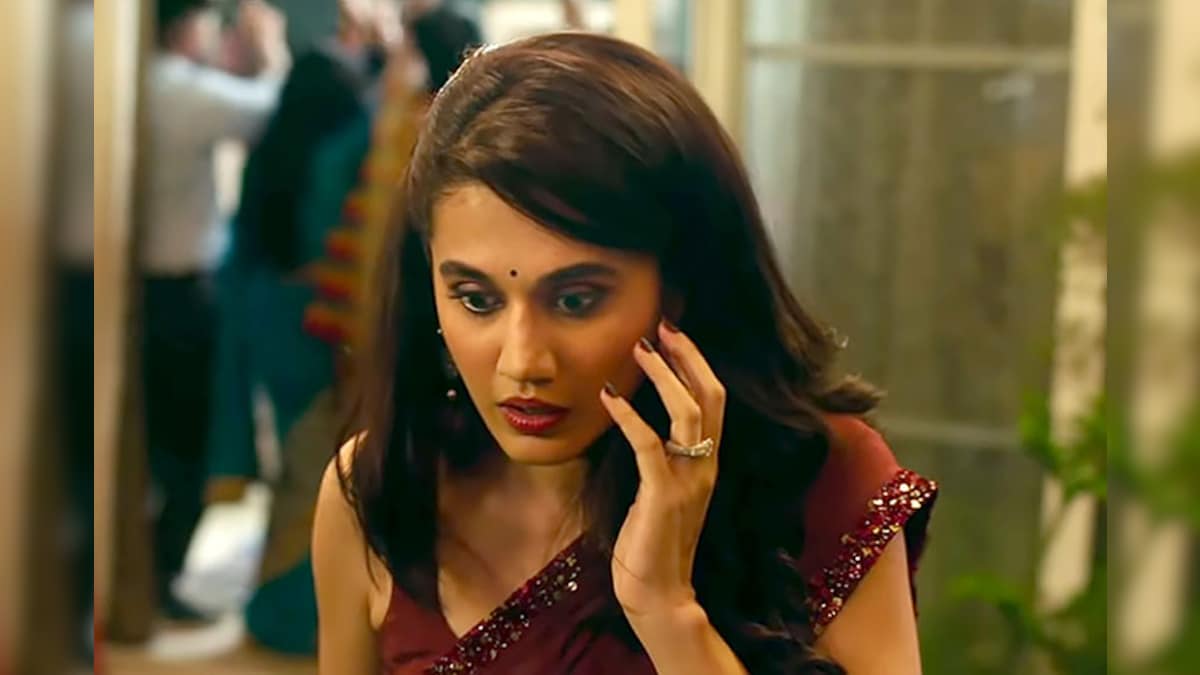
Last Updated: February 27, 2020, 12:07 IST
Thappad
Cast: Taapsee Pannu, Pavail Gulati
Director: Anubhav Sinha
After Mulk, on the communal discrimination against Muslims in India, Article 15 about the caste divide and now Thappad, about domestic violence, director Anubhav Sinha perhaps completes his trilogy of the flawed power dynamics across India’s most vulnerable sections –namely minorities, non-upper castes, and women.
Gender discrimination, a natural fallout of a traditional society steeped in patriarchy has had many manifestations and Thappad challenges the male privilege and entitlement that men have enjoyed over centuries.
According to Lundy Bancroft author of “Why does He do That? Inside the Minds of Angry and Controlling Men, “The abusive man’s high entitlement, leads him to have unfair and unreasonable expectations, so that relationship revolves around his demands. For each ounce he gives, he wants a pound in return…
You can pour all your energy into keeping your partner content, but if he has this mindset, he will never be content for long. And he will keep feeling that you are controlling him because he doesn’t believe that you should set any limits on his conduct or insist that he meet his responsibilities.”
The above explanation from Lundy, in a nutshell, is the wisdom that Amrita (Taapsee Pannu) senses early on- after the first time she is slapped by her husband Vikram (Pavail Gulati) in the presence of family and friends. Should she ignore the incident and accept herself as someone who can be slapped around for the affection that she receives? Or not? Her dilemma is only compounded by the many voices around her–of family and well-wishers before she arrives at a decision about the direction in which she should steer her life.
Domestic abuse is discussed threadbare in the film with the many perspectives on the matter. However, this is no shrill soap opera or melodrama on Abla Naaris. The writing is lucid and simples and centers around the question of whether Amrita should cast aside an otherwise happy married life merely on the basis of a single episode of domestic violence. Amrita’s point is well reasoned and it indicts not merely an individual, but everyone who perpetrates patriarchal malpractices even to the smallest degree. Women and men stand equally indicted for the parts they play in encouraging such behaviour, but what is particularly impressive is the gentle drawing out of the male ignorance, denial and then eventual reformation. Sinha’s take-no-prisoners approach spares no one.
Thappad is a rousing soul search, raising the question again and again, till it forces an answer.
Pannu brings alive her aching dilemma- whether asserting her right to be happy and respected in defiance of the male privilege in a patriarchal society- is a mistake or not. She takes a while to process her humiliation, how it diminishes her self-esteem and then charts her course. It’s a decision that makes everyone uncomfortable for complicity, indifference or sheer chauvinism. Fortunately, there is no shrill chest-beating; it’s a journey of quiet self-realization- an important one for herself and for everyone in her circle of influence.
Taapsee Pannu known better for her feisty performances is mature and understated and this would arguably be one of the best performances from her. Ratna Pathak Shah and Kumud Mishra are exceptional. Pavail Gulati makes a competent debut as the male lead. Dia Mirza is perfect for the small but impactful part she plays, as are Tanvi Azmi and Maya Sarao.
What Sinha does particularly well is to connect the dots between different strata of society and the connecting thread, shockingly, is the discriminatory behavior towards its womenfolk. The film evoked mixed reactions from men and women at the screening itself, and is likely to start yet another significant conversation in India, one which was long overdue.
In the post-feminist era, when women have to navigate their way around the choices they have made, Thappad hits just the perfect note.
Rating: 4/5 stars













